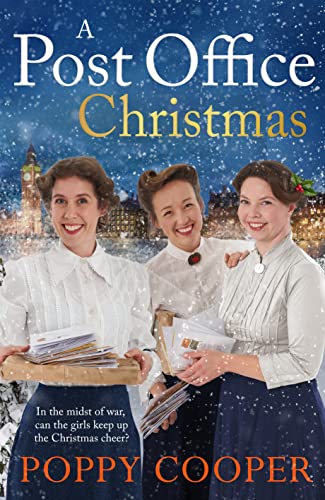A Post Office Christmas
1915. With Christmas approaching, Post Office girls Milly, Nora and Liza are working hard at the Home Depot to get letters and parcels to the troops at the front. Milly is transferred to a different department. Was it because of her lower-class background? Had her suffragist leanings put her out with her workmates? She misses her friends but takes solace with her local radical suffragette group, ELFS, and makes a new friend, ex-soldier Jack. Coming home from a meeting, Milly is accosted by a drunken soldier and saved by fellow suffragettes, Hilda and Elise. The police believe his side of the story. Milly challenges the miscarriage of justice.
The story highlights the way women were treated, despite the opportunities opened by the war—the pay differential, being accosted in the street at night, not being listened to by police, sitting in a separate section of the pub to avoid catcalls, always in charge of refreshments—not to mention multiple children and the threat of the workhouse.
Suffragette leader, Sylvia Pankhurst, has ruled ‘no militant action’ due to the war, but the ELFS ‘girls’ have other ideas and plot to disrupt the forthcoming royal visit. Yet this is a feel-good story, so the outrage is averted, the Christmas revelries spill out onto Euston Road, and ‘our boys’ will be getting their parcels, after all. However, the novel is not all fluff. It deals with the working lives of working-class women: relationships with workmates and supervisors, what they actually did to sort the post, how they spent their lunch breaks, at a time when a female ‘postie’ was a great novelty.
This is Book 2 in the series. Each is written from the point of view of a different girl, so next time we will have the posh girl’s viewpoint.










